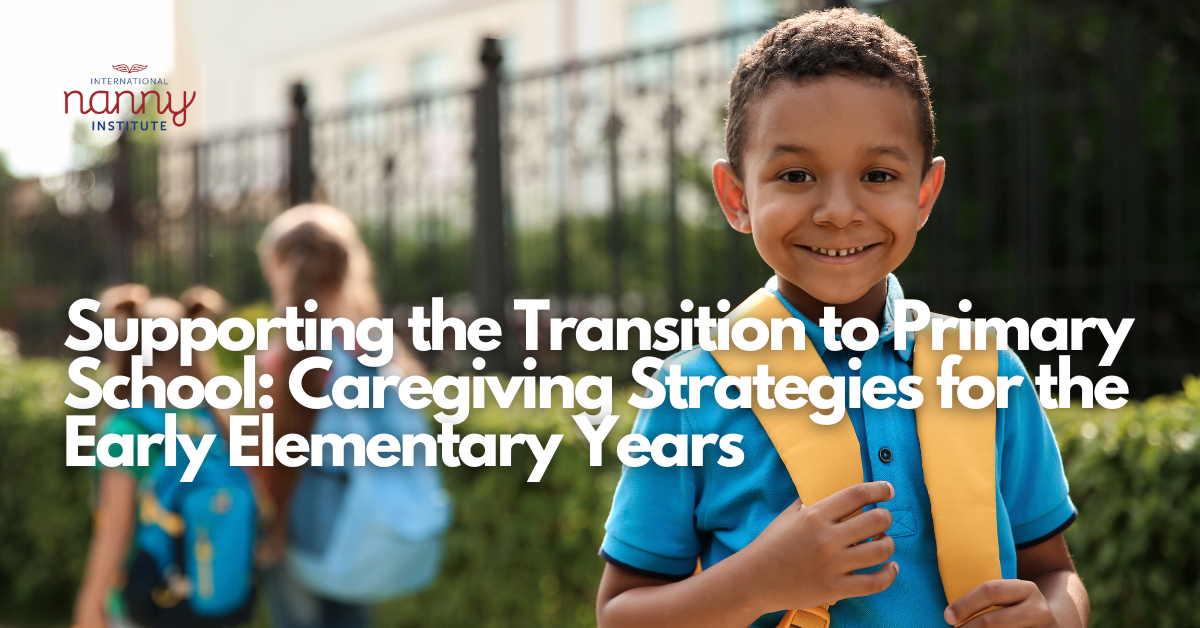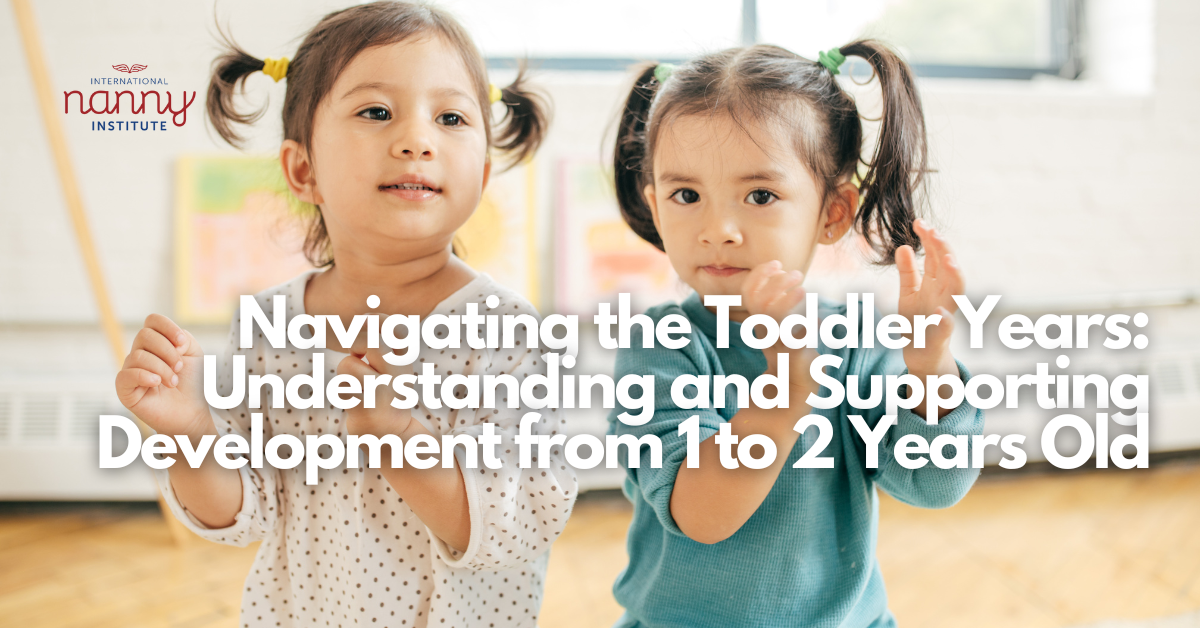How nannies can encourage children’s independence
Maria Montessori encouraged adults to “never help a child with a task at which he feels he can succeed” as she had observed that often adults stifle children’s emerging independence by jumping in to ‘save the day’.
Unfortunately, not only does this rob children of the chance to try and to persevere, but it also gives children the message that they can’t do things and they need adults to help them with everything.
Whether the family you are working with has explicitly stated that they want you to use a Montessori-style approach with the children, or you just see value in promoting independence, there is plenty that you can do as a nanny that can help children to develop these self-help skills.
So, if you would like to encourage children’s independence at home, here are some good starting points;
Acknowledge children’s attempts at independence

Often we are in a hurry to get out of the door, and see the child having a tantrum about wanting to put on their own shoes as being “difficult” but if we step back and consider what is going on a little more carefully we will realise that the child is expressing a sense of frustration that we are preventing their attempt at independence.
Taking a step back, and acknowledging that this is what is going on is a great place to start thinking about how you can set up the home, and your routines with the children to allow for this growing sense of independence.
It is also worth noting here that most tantrums are a toddler or child’s manner of expressing frustration at boundaries, and lack of independence. This does not necessarily mean you should remove or reduce your boundaries; just that you should consider how you are acknowledging children’s feelings for what they are.
Creating a ‘yes’ space
Often we limit what children are allowed to do based on safety concerns, or worries about the mess and tidying up.
For example, you may tell a 3-year-old that no, they can’t play with their dolls in the lounge as it will make a mess, and no they can’t throw the frisbee inside the house as they may break something, and no they can’t jump around the house like a power ranger or a fairy or a superhero because they may hurt themselves.
Before you know it you’ve spent the morning telling them ‘no’, and if anything will frustrate a growing sense of independence it’s the word ‘no’.

As a nanny this can be a difficult line to tread when working with parents, as ultimately the house belongs to them, however, it is certainly something that could be discussed tactfully if you feel that too many rules are starting to affect a child’s growing sense of independence.
To combat this it may be a good idea to negotiate being able to set up a ‘yes’ space in the home; this might be a playroom, the child’s bedroom, or a play area.
The idea is to set the space up to be safe enough that you, as the caregiver, do not need to constantly say no. Montessori classrooms are largely yes spaces; somewhere that you can trust children to play independently and stay safe.
Encourage children’s independence with words

What we say and how we say it can make a huge difference to children.
As we already discussed most children want to be independent and become frustrated when they are not allowed to be.
When we verbally permit, encourage and celebrate children’s attempts at being independent we validate them, and when children feel validated in their attempts at independence, they are more likely to persevere with what they’re trying and eventually succeed.
As a nanny, you can try saying things like “You have a go” or “keep trying” to children.
You can praise the effort by saying “You’re working so hard at that” or “great trying” and acknowledge success with “well done, I knew you could do it!”
Use mealtimes as an opportunity
Meal times with little ones are a common source of stress, but they can be a great opportunity to build independence and self-help skills.
Even young babies (so long as they are over 6 months) can feed themselves at the table and using a baby-led weaning approach is a great way to promote that early independence, as a nanny this is something that can be discussed with parents.
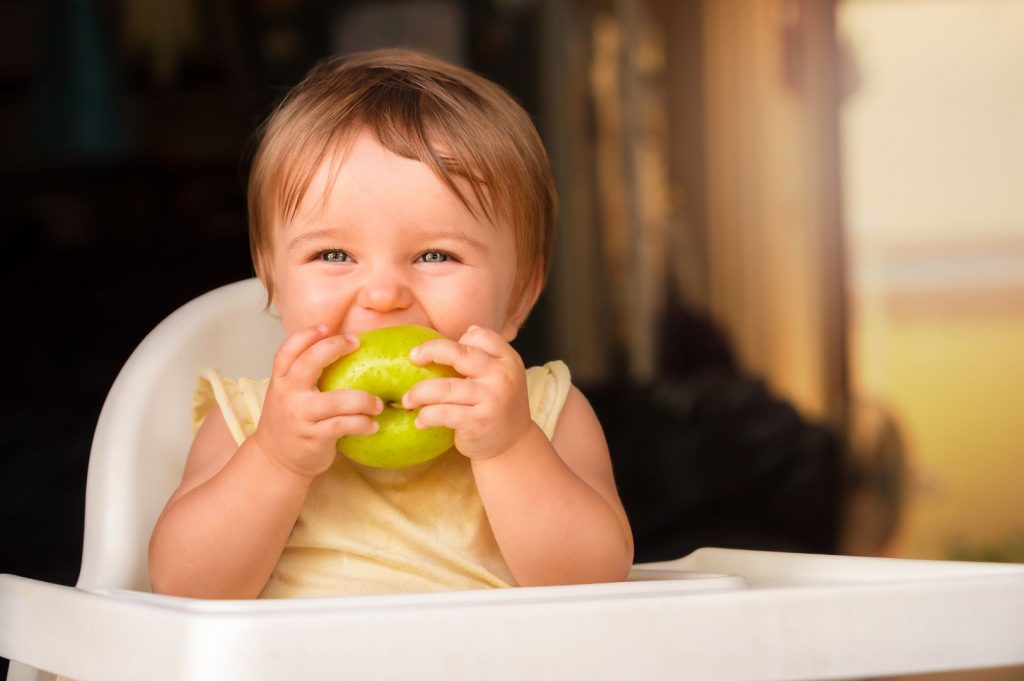
For older children, encouraging children to serve or even help prepare their food, and pour water from a jug enhances their balance, dexterity and hand-eye coordination.
This also helps to divide responsibility at mealtimes which are perfect for promoting independence.
As a bonus, children tend to eat a wider variety of food when they select it themselves.
Avoid wardrobe battles

Children are often keen to select their own clothing and dress themselves, although their fashion choices can be questionable at times, allowing them to make attempts at dressing will pay off in the long run.
If a child’s choices are likely to be unsuitable for the day’s activities or the weather you could decide on an outfit together perhaps the night before and lay it out for them to put on themselves in the morning.
Younger toddlers and babies can be encouraged to lift their arms to put on a shirt or raise their feet to put on shoes and socks.
Use your best judgment as to when a child may be able to attempt dressing alone and remember, that wearing a tutu over a raincoat is not the end of the world.
Make sure children contribute
Involving children in running the household from a young age is great for promoting independence and also demonstrates their role in the family and enhances their sense of belonging.
It builds an understanding of working as a collective and is something that is highly emphasised in educational approaches like Montessori.
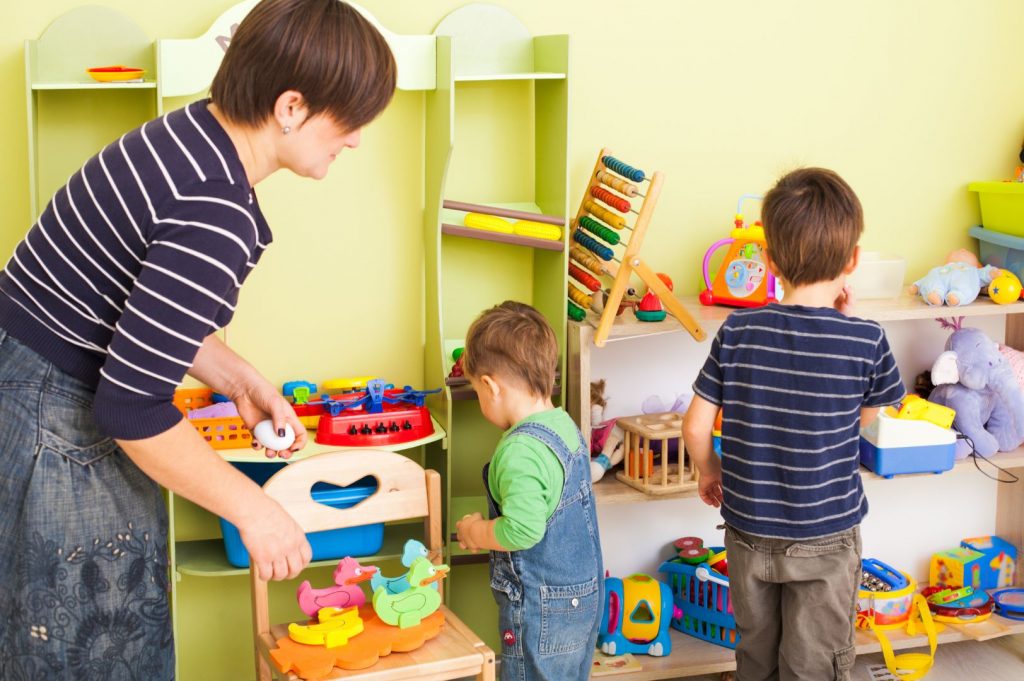
This is not to say that children need to be doing housework all day long, but small contributions add up and will help promote children’s independence too;
Little babies can be encouraged to help put their toys away in a box when they have finished playing, or wipe the highchair tray when they are done eating.
Toddlers generally love to help around the home and can use a small dustpan and brush or a handheld vacuum to clear up.
Matching socks and sorting laundry are also valuable learning opportunities for preschoolers and will help children to feel involved in the running of the home.
Encourage risk-taking
As nannies, it’s our job to keep children safe, but sometimes we can become overly worried about this responsibility and as a result, we can become very overprotective of our charges and actually hold their development back by doing so.
Healthy risk-taking is vital for children’s emerging sense of self because where there is a risk of failure, success is more valuable.
Allowing children to climb, run and jump and explore their limits is essential for the growth and development of independence, so we can consider ways to allow for healthy risk-taking that promotes children’s physical skills and sense of independence.
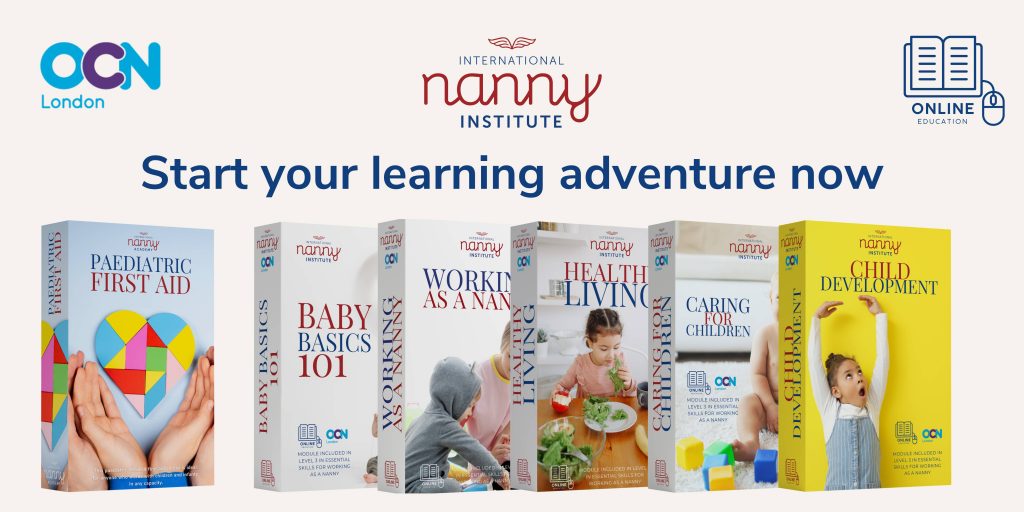
We hope that some of these ideas will help you consider how to approach encouraging children’s independence.
To find out more about the natural pattern of Children’s development and how and when to support their growing independence sign up for our Child Development course.
Not only will this boost your confidence in working with children in an age-appropriate manner, but it will reassure families that you have the expertise in childhood and early years.




